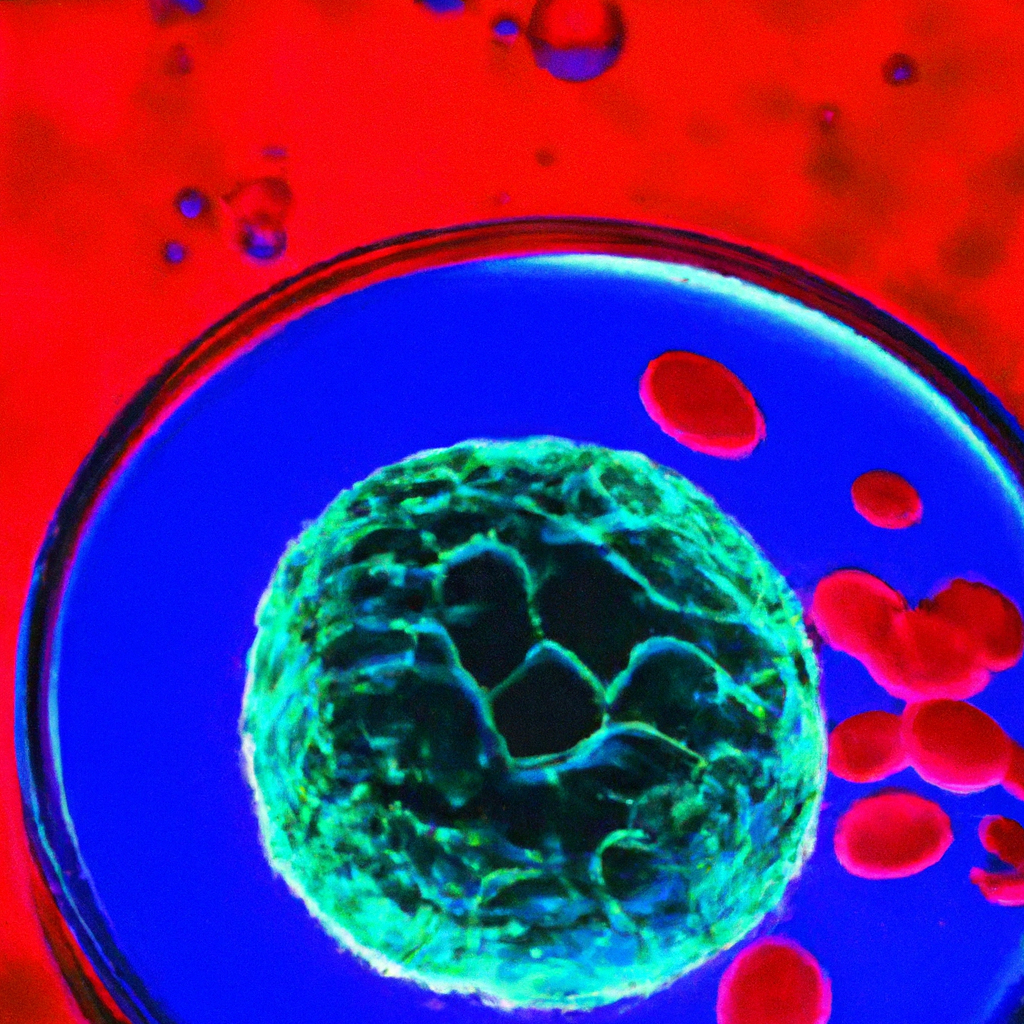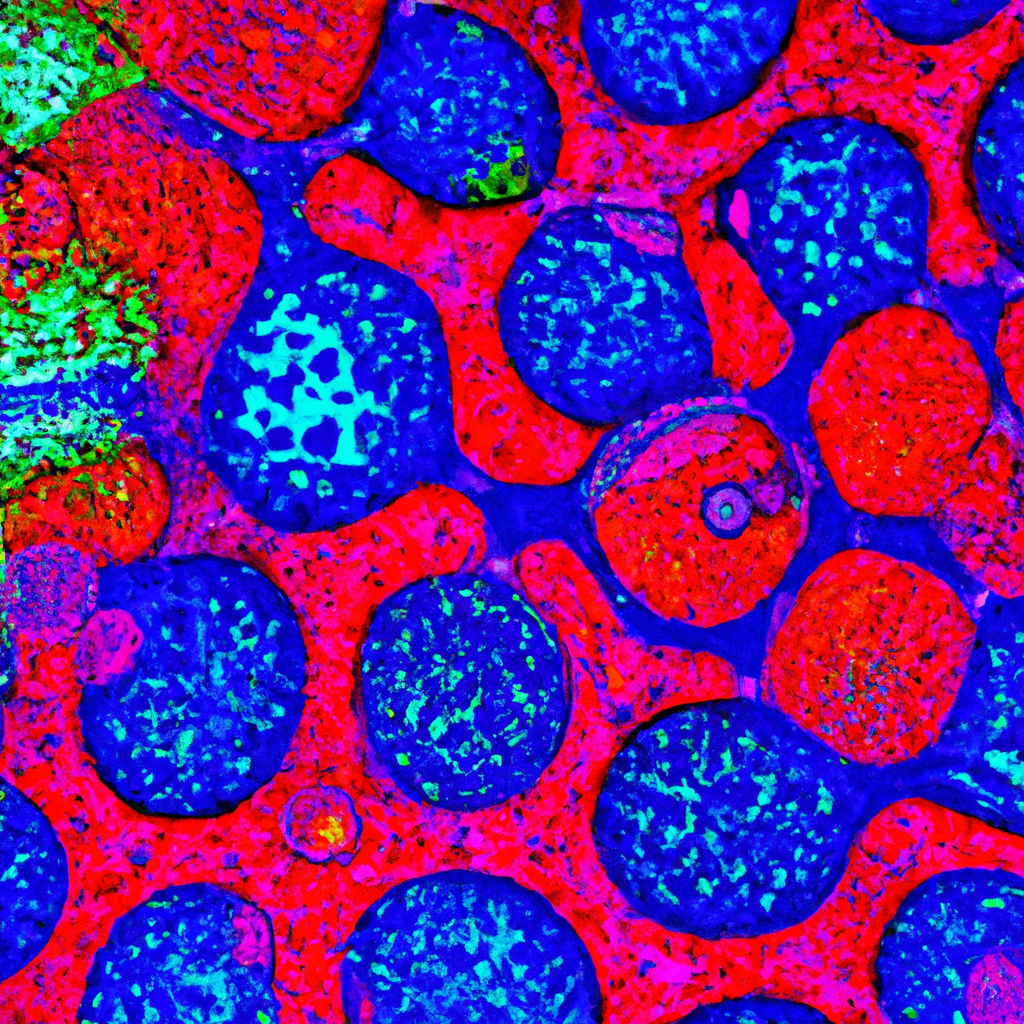Did you know that Malaysia has been making significant strides in the field of stem cell research? If you’re curious about the presence of universities conducting this groundbreaking research in the country, look no further. This article aims to provide you with an overview of the universities in Malaysia that are actively engaged in stem cell research. Join us on this journey as we explore the innovative efforts taking place within the Malaysian academic landscape.
Introduction
Welcome to this comprehensive article on stem cell research in Malaysia! In this article, we will provide an overview of stem cell research, explore the history and current state of stem cell research in Malaysia, highlight the universities involved in conducting research in this field, discuss case studies of ongoing projects, and delve into the challenges and future outlook of stem cell research. By the end of this article, you will have a greater understanding of the importance of stem cell research and the efforts being made in Malaysia.
Overview of Stem Cell Research
Definition of Stem Cells
Stem cells are undifferentiated cells that have the remarkable ability to develop into various cell types in the body. They possess two key properties: self-renewal, which allows them to divide and produce more stem cells, and pluripotency, which enables them to differentiate into specialized cells, such as muscle cells, nerve cells, and blood cells.
Types of Stem Cells
There are different types of stem cells, each with their own unique characteristics and potential uses. Embryonic stem cells, derived from embryos, are considered pluripotent and have the greatest potential for differentiation. Adult or somatic stem cells are found in various tissues and organs throughout the body and function primarily to repair and regenerate damaged cells. Induced pluripotent stem cells (iPSCs) are adult cells that have been reprogrammed to exhibit characteristics similar to embryonic stem cells.
Importance of Stem Cell Research
Stem cell research holds immense promise for both scientific discovery and medical advancements. It has the potential to revolutionize the field of regenerative medicine by providing treatments and therapies for a wide range of diseases and injuries. Stem cells can be used to replace damaged or degenerated cells, regenerate organs and tissues, and even help understand the mechanisms of disease. By studying stem cells and their behavior, researchers can gain valuable insights into human development, disease progression, and potential therapeutic interventions.

Stem Cell Research in Malaysia
History of Stem Cell Research in Malaysia
Stem cell research in Malaysia has steadily grown over the past few decades. In the early 2000s, the Malaysian government recognized the importance of stem cell research and its potential for medical advancements. Efforts were made to establish research centers and collaborations to support the development of this field. The pioneers in stem cell research in Malaysia were a handful of visionary researchers who laid the foundation for future advancements.
Government Initiatives and Funding
The Malaysian government has been proactive in promoting stem cell research through various initiatives and funding programs. Agencies such as the Ministry of Science, Technology, and Innovation (MOSTI) and the Ministry of Higher Education (MOHE) have provided grants and financial support to researchers and institutions involved in stem cell research. These initiatives aim to encourage scientific innovation, attract talent, and enhance Malaysia’s research capabilities in the field of stem cell biology and regenerative medicine.
Collaborations and Partnerships
To accelerate progress in stem cell research, Malaysian institutions and researchers have actively sought collaborations and partnerships with international counterparts. This has allowed for the exchange of knowledge, expertise, and resources, enabling Malaysian researchers to stay at the forefront of advancements in stem cell research. Collaborative projects with renowned institutions from countries such as the United States, Australia, Japan, and the United Kingdom have enriched Malaysia’s stem cell research landscape.
Universities Conducting Stem Cell Research
Several universities in Malaysia are actively involved in conducting stem cell research. Let’s take a closer look at some of these institutions:
University of Malaya
The University of Malaya, one of the oldest and most prestigious universities in Malaysia, has established a strong presence in stem cell research. Its Stem Cell Research and Regenerative Medicine Centre (SCRMC) focuses on studying the therapeutic potential of stem cells in various diseases, including cardiovascular disorders, neurodegenerative diseases, and cancer. The center collaborates with local and international partners to advance stem cell research in Malaysia and contribute to global scientific knowledge.
Universiti Kebangsaan Malaysia
Universiti Kebangsaan Malaysia (UKM) is another prominent institution actively involved in stem cell research. Its Stem Cell Centre conducts both basic and applied research in various areas, such as stem cell biology, tissue engineering, and cell-based therapies. The center’s multidisciplinary approach brings together experts from different fields to tackle complex research questions and develop innovative solutions.
Universiti Sains Malaysia
Universiti Sains Malaysia (USM) has made significant contributions to stem cell research through its Regenerative Medicine Cluster. Researchers at USM focus on exploring the potential of stem cells in tissue engineering and regenerative medicine, with a particular emphasis on developing therapies for bone and cartilage defects. The university’s collaborations with industry partners further facilitate the translation of research findings into clinical applications.
Universiti Putra Malaysia
Universiti Putra Malaysia (UPM) houses the Institute of Bioscience, which actively conducts stem cell research. The institute’s research efforts span a wide range of applications, including stem cell therapy, tissue engineering, and drug discovery. UPM’s collaborations with national and international institutions have enabled groundbreaking discoveries and advancements in the field of stem cell research.
International Medical University
The International Medical University (IMU) also contributes to stem cell research through its School of Medicine. IMU researchers investigate the therapeutic potential of stem cells in various diseases, such as diabetes, neurodegenerative disorders, and liver diseases. The school’s strong emphasis on translational research allows for the development of innovative treatment strategies that can benefit patients in Malaysia and beyond.
Monash University Malaysia
Monash University Malaysia boasts a vibrant stem cell research community through its Jeffrey Cheah School of Medicine and Health Sciences. Stem cell researchers at Monash explore stem cell biology, tissue engineering, and regenerative medicine, focusing on applications in cardiovascular diseases, liver disorders, and skeletal muscle regeneration. The university’s strong research culture and international collaborations foster a conducive environment for groundbreaking discoveries.
Universiti Teknologi Malaysia
Universiti Teknologi Malaysia (UTM) is actively involved in stem cell research through its Institute of Bioproduct Development. Researchers at UTM investigate the potential of stem cells in various applications, including tissue engineering, wound healing, and drug discovery. The institute’s state-of-the-art facilities and interdisciplinary collaborations enable cutting-edge research and the development of practical solutions for healthcare challenges.
Universiti Malaysia Sarawak
Universiti Malaysia Sarawak (UNIMAS) has a growing stem cell research community. The university’s Stem Cell Research Cluster focuses on understanding the fundamental biology of stem cells and exploring their therapeutic potential. UNIMAS researchers collaborate with local and international partners to advance stem cell research and develop innovative treatments for diseases such as cancer, diabetes, and neurodegenerative disorders.
Universiti Tunku Abdul Rahman
Stem cell research at Universiti Tunku Abdul Rahman (UTAR) is spearheaded by the Institute of Medical and Health Sciences. Researchers at UTAR investigate the properties and potential applications of stem cells, with a focus on regenerative medicine and tissue engineering. The institute’s research findings contribute to scientific knowledge and have the potential to impact healthcare practices in Malaysia and beyond.
Universiti Malaysia Sabah
Universiti Malaysia Sabah (UMS) actively participates in stem cell research through its Institute of Tropical Biology and Conservation. Stem cell researchers at UMS focus on the therapeutic potential of stem cells in various tropical diseases, such as infectious diseases and vector-borne diseases. The institute’s research contributes to the understanding of stem cell biology and the development of novel treatment strategies for tropical diseases prevalent in Malaysia.

Case Studies of Stem Cell Research Projects
Project A: Development of Stem Cell Therapy for Heart Disease
Researchers at the Stem Cell Research and Regenerative Medicine Centre (SCRMC) at the University of Malaya are working on a project aimed at developing stem cell-based therapy for heart disease. The project involves isolating and characterizing cardiac stem cells from patients with heart disease and exploring their potential for regenerating damaged heart tissue. This research has the potential to revolutionize the treatment of heart disease and improve the quality of life for patients.
Project B: Stem Cell Research for Neurodegenerative Diseases
The Stem Cell Centre at Universiti Kebangsaan Malaysia is actively involved in studying the therapeutic potential of stem cells for neurodegenerative diseases, such as Alzheimer’s and Parkinson’s disease. Researchers are exploring the use of stem cells to replace damaged or lost neurons and restore lost neurological function. This project holds great promise for developing effective treatments for these debilitating diseases.
Project C: Stem Cell Application in Cancer Treatment
Scientists at the Regenerative Medicine Cluster in Universiti Sains Malaysia are investigating the application of stem cells in cancer treatment. Their research focuses on the use of stem cells to deliver targeted therapies to cancer cells, enhance the body’s immune response against cancer, and regenerate healthy tissue post-cancer treatment. This innovative approach has the potential to revolutionize cancer treatment and improve patient outcomes.
Challenges and Future Outlook
Regulatory Framework and Ethical Considerations
One of the major challenges in stem cell research is the need for a robust regulatory framework and ethical guidelines to ensure the responsible use of stem cells. Malaysia has made significant progress in this area, with the establishment of the National Stem Cell Registry and the Malaysian Stem Cell Guidelines to regulate the use of stem cells in research and clinical applications. Ongoing efforts to update and refine these regulations will be crucial in fostering a conducive environment for stem cell research in the country.
Research Funding and Support
Securing adequate funding for stem cell research is another challenge faced by researchers in Malaysia. While the government has provided substantial support through funding programs, additional resources are required to sustain long-term research projects and enable researchers to compete on a global scale. Continued investment in stem cell research and the establishment of public-private partnerships can help address this issue and ensure the sustainability of research activities.
International Collaboration and Knowledge Exchange
International collaboration plays a vital role in advancing stem cell research, as researchers can benefit from shared expertise, resources, and infrastructure. Malaysian institutions should actively seek opportunities for collaboration with renowned international institutions and actively participate in knowledge exchange platforms. This will strengthen Malaysia’s research capabilities, accelerate scientific discovery, and foster innovation in the field of stem cell research.
Potential for Advancement in Stem Cell Research
Despite the challenges, the future outlook for stem cell research in Malaysia is promising. The increasing number of universities and research centers involved in stem cell research, coupled with supportive government policies and funding programs, creates a conducive environment for research advancements. With ongoing efforts to enhance research capabilities, establish collaborative networks, and address ethical considerations, Malaysia has the potential to emerge as a global leader in stem cell research and contribute to groundbreaking discoveries in regenerative medicine.

Conclusion
In conclusion, stem cell research in Malaysia has made significant progress in recent years, driven by government initiatives, university collaborations, and dedicated researchers. Malaysian universities, such as the University of Malaya, Universiti Kebangsaan Malaysia, Universiti Sains Malaysia, and others, are actively conducting research in this field and contributing to scientific knowledge and medical advancements. Ongoing projects focused on heart disease, neurodegenerative diseases, and cancer treatment showcase the immense potential of stem cells in improving human health. While challenges exist, such as regulatory frameworks and research funding, Malaysia has the opportunity to excel in stem cell research and become a hub for innovation in regenerative medicine. The future of stem cell research in Malaysia is bright, and the discoveries made in this field have the potential to reshape healthcare practices and improve the lives of countless individuals.




